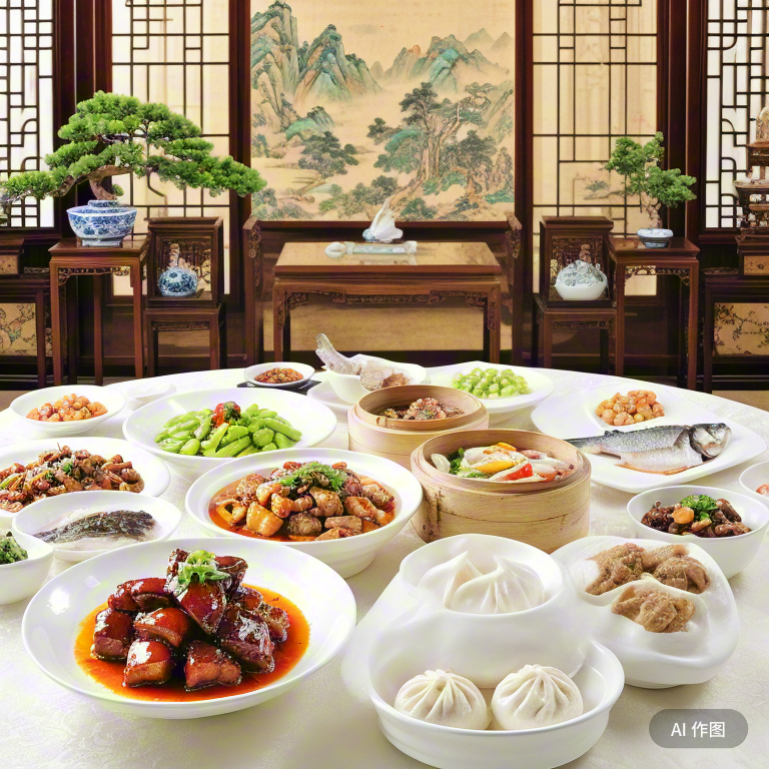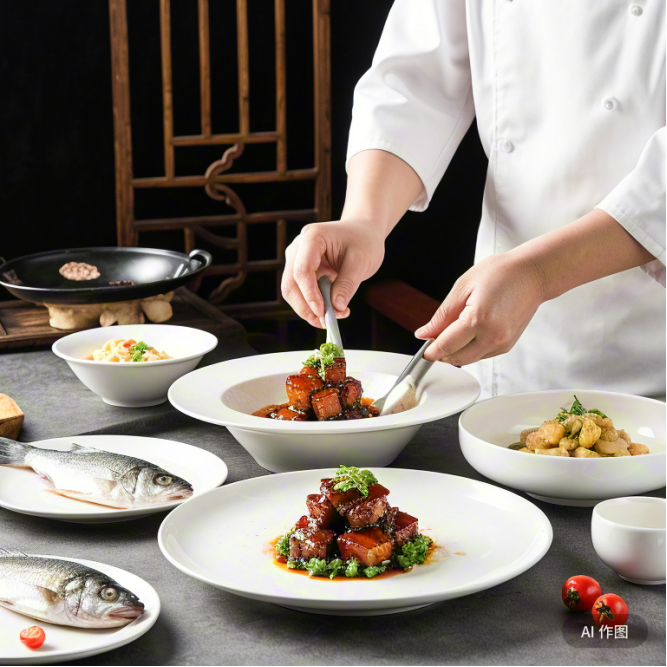On the world's food map, Chinese food culture and Western food culture each shine with their own unique brilliance. The two not only differ greatly in terms of ingredient selection, cooking techniques, and taste preferences, but also exhibit completely different styles in terms of dietary philosophy and health concepts. Today, we will unlock the unique secrets of Chinese food culture.

Chinese Diet: Diversity in Ingredients and Nutritional Balance
Chinese food culture is famous for its rich choice of ingredients. From all kinds of seafood in mountains, rivers, lakes and seas, to vegetables and fruits in different seasons, to a wide variety of cereals and beans, all of them reflect the ultimate pursuit of Chinese people for diversity of ingredients. This diversity not only satisfies the exploration of taste buds, but more importantly, ensures a balanced and nutritious diet. In contrast, although Western cuisine also emphasizes the quality of ingredients, it is often difficult to compare with Chinese cuisine in terms of the wide range and diversity of ingredients.

Chinese Culinary Arts: A Profound and Extensive Tradition
Chinese culinary techniques have a long and profound history, including various techniques such as stir frying, stewing, steaming, boiling, and grilling, each of which can maximize the preservation of the original flavor and nutritional content of ingredients. Especially the technique of "steaming" is considered one of the best ways to preserve the nutrition of food, and although Western cuisine also has methods such as grilling and frying, Chinese cuisine undoubtedly excels in the diversity of cooking techniques and respect for the original taste of ingredients.

Chinese Diet: Integration of Dietary Therapy and Health Preservation
Chinese food culture is deeply influenced by traditional Chinese medicine theory, emphasizing the concept of "medicine and food sharing the same origin" and viewing food as a good medicine for nourishing the body and preventing diseases. Through the cold, hot, warm, and cool properties of food, as well as the regulatory effects of the five flavors (sour, bitter, sweet, spicy, and salty) on the human body's organs, Chinese cuisine not only enjoys deliciousness but also achieves the goal of health preservation. Although this concept is reflected in Western cuisine, it is far less systematic and profound than Chinese cuisine, becoming one of its unique advantages.
Chinese Culinary Culture: A Platform for Social Interaction
In China, eating is not only about satisfying one's appetite, but also an important way of socializing. Whether it's a family gathering, a friend gathering, or a business banquet, communication at the dinner table often carries profound emotions and interpersonal relationships. The social function of this dietary culture promotes emotional communication between people and enhances social cohesion. In contrast, although Western cuisine also has social attributes, it often emphasizes personal dining experience and relatively weakens its social function.
In conclusion, Chinese culinary culture boasts numerous advantages over Western cuisine, ranging from its diverse ingredients and nutritional balance, profound cooking techniques, integration of dietary therapy and health preservation, to its strong social function. These unique characteristics not only enrich the global culinary landscape but also provide valuable insights into healthy and harmonious living. As the world increasingly appreciates the beauty of diversity, Chinese culinary culture stands as a shining example of how food can transcend borders, connect hearts, and nourish bodies and souls alike.




